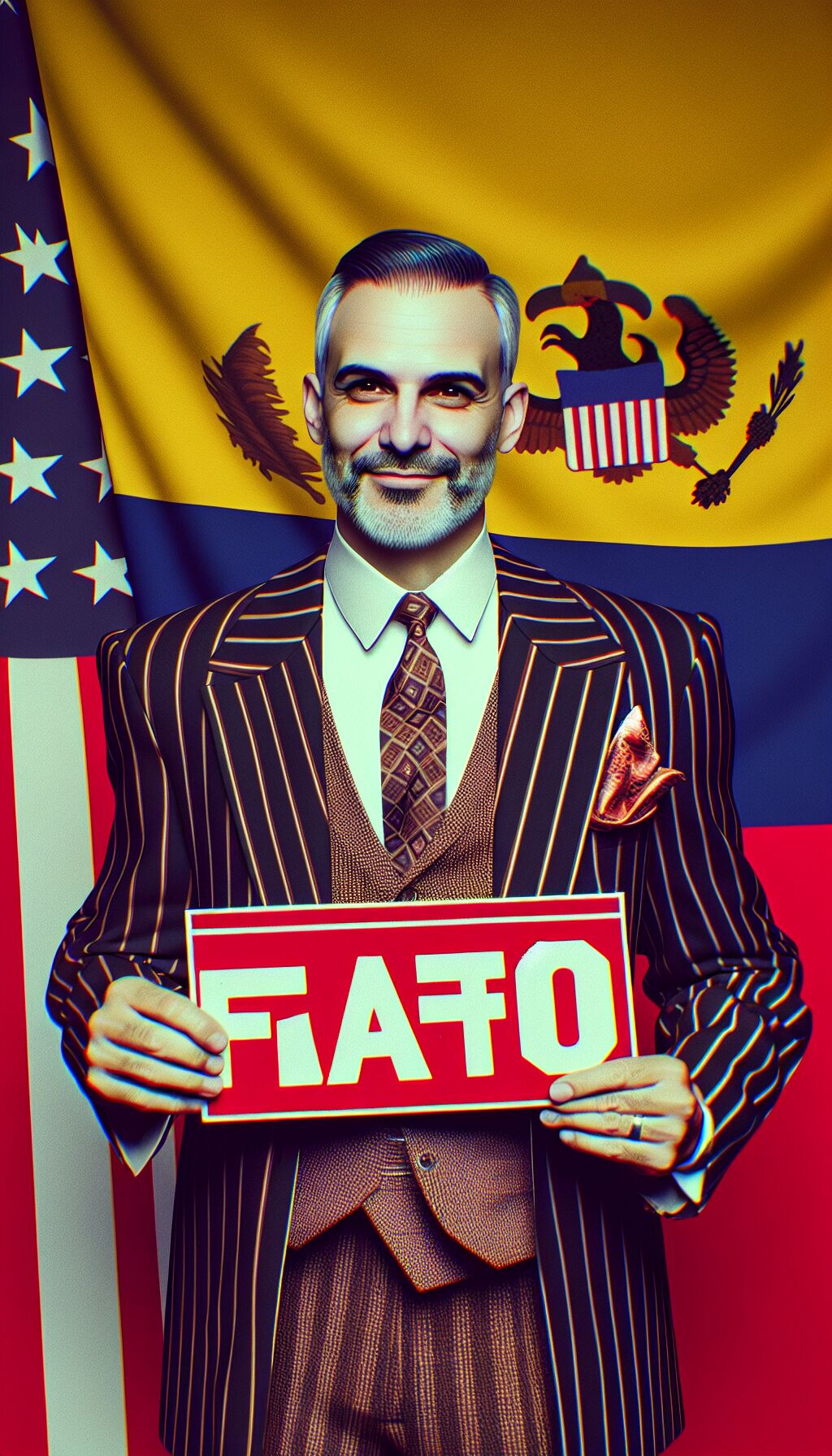Colombia’s Rapid Policy Change: A Response to U.S. Pressure
In a stunning diplomatic turnaround, Colombia has swiftly accepted the return of deportation flights for migrants, a decision hailed by President Donald Trump as a significant victory for his assertive “f— around and find out” (FAFO) approach to governance. This abrupt shift is not merely a matter of domestic policy for Colombia; it signals a potentially fraught period for U.S.-Colombian relations, which had, until recently, remained strong.
U.S. Diplomacy and Its Global Impact
The U.S. government’s strong-arm tactics have sparked noticeable reverberations internationally. China has indicated plans to accept its nationals unlawfully residing in the U.S. under the new administration, amidst concerns about retaliatory tariffs that could reach as high as 60%. This move highlights the broader implications of U.S. policy changes, as nations around the world reassess their stances concerning deportations and immigration.
The Colombia-U.S. Diplomatic Tension
President Gustavo Petro’s refusal to accept two incoming flights carrying Colombian deportees marked one of the first diplomatic crises of the current U.S. administration. In immediate retaliation, Trump announced a series of economic sanctions, including a sweeping 25% tariff on all Colombian goods and a travel ban affecting Colombian government officials. He warned that tariffs could escalate to 50% within days.
In response, Petro attempted to counter Trump’s measures by imposing similar tariffs on U.S. imports, showcasing a reciprocal approach to trade tensions. However, internal political pressure soon compelled the Colombian leader to kneel to U.S. demands. Following the debacle, Trump celebrated on social media by posting an AI-generated image of himself styled as a mobster, affirming his strategy’s success with a cheeky “FAFO” sign.
The U.S. Shift: A Surprise for Colombia
Political analysts suggest that Petro was caught off guard by the U.S.’s economic response. Andres Martinez-Fernandez, a Latin America analyst at the Heritage Foundation, remarked that the Biden administration had not exerted significant pushback against the disruptions caused by Petro’s government. Consequently, this perceived leniency may have emboldened Colombia’s leadership.
“Petro likely expected to navigate these disputes over a longer timeline,” noted Joseph Humire, executive director at the Center for a Secure Free Society. “However, the sudden U.S. pushback forced him to reconsider his position.” Humire elaborated that Petro’s initial resistance was probably driven by ideological convictions rather than the economic welfare of Colombia. Concerns among governmental ministers and the private sector ultimately pressured him into acquiescence.
Migrant Crisis and Policy Ramifications
For years, both President Biden and former Vice President Kamala Harris urged migrants to reconsider their journeys to the U.S. despite record-high illegal immigration figures. Biden’s admonition, “Don’t come,” emphasized the difficulties awaiting prospective migrants. Nevertheless, from 2021 to 2023, net migration into the U.S. reached unprecedented levels, with annual averages of 2.4 million contributing to population growth.
Initially, Petro stood firm, demanding that deportees be treated with dignity and respect and refusing to accept migrants who were shackled or transported on military planes. However, as U.S. threats intensified, Colombian government officials quickly reversed their position, ultimately agreeing to all U.S. requests, including the acceptance of military plane transport for deportees.
Colombia’s History of Cooperation with the U.S.
The relationship between the U.S. and Colombia has historically been characterized by cooperation and mutual benefit, particularly in the realm of security. Since 2000, Colombia has received over billion in U.S. aid focused on counternarcotics efforts and the implementation of peace accords following decades of conflict. The nation has also become a major non-NATO ally, reflecting its strategic importance to U.S. interests in the region.
Colombia’s New Orientation: A Look Towards the East
Under Petro’s administration, Colombia is visibly striving to diverge from its longstanding alliance with the U.S. In sharp contrast, Petro appears intent on forging closer ties with nations such as China, Russia, and Iran, while simultaneously enhancing relations with Venezuela—a country that is often at odds with U.S. foreign policy. Political analysts warn that Petro is realigning Colombia within a new geopolitical context that increasingly embraces authoritarian regimes.
Internal Political Strife and Future Implications
This diplomatic spat not only strained U.S.-Colombian relations but also led to internal discord within Petro’s administration. Reports indicate a significant rift between Petro and his Foreign Minister, Luis Murillo, which could have long-term implications for Colombia’s foreign policy direction. Murillo, staying in communication with Trump’s special envoy, has made outreach efforts to mend ties with U.S. lawmakers while also facilitating trade relations, as the U.S. accounts for 34% of Colombia’s total trade.
Conclusion: A New Chapter in Colombian-U.S. Relations?
The recent incidents paired with Colombia’s future trajectory will significantly shape the diplomatic landscape in Latin America. As the return of deportation flights marks just one aspect of this evolving relationship, the broader implications for Colombia’s economy, security, and international alliances will undoubtedly remain under scrutiny in the months and years to come. With growing uncertainties in international politics, Colombian leaders may need to tread carefully to balance domestic exigencies with the realities of a globalized world influenced by powerful nations.










